Are you ready to embark on your next solo travel adventure? Before you jet off, it’s important to get organized and keep all your important travel documents in order. This guide will provide you with tips and tricks to stay safe and organized throughout your travels. Let’s dive in!
1. Keep Everything in One Place

When you’re a solo traveler, it’s essential to keep everything in one place to avoid any potential mishaps that could occur if your documents were scattered throughout your luggage. We recommend investing in a durable travel document holder or wallet that allows you to store your passport, visa, boarding pass, and any other documentation you need. It’s also beneficial to have a distinct and easily accessible location for your important documents, so you’re not frantically searching through your belongings when you need them.
If you’re worried about misplacing or losing your travel document holder, consider attaching a bright luggage tag or using a standout color so you can easily locate it in your luggage.
2. Make Copies
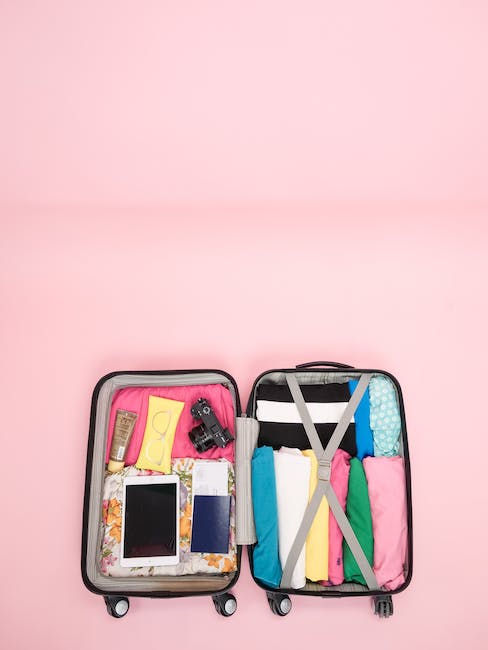
Keeping copies of your travel documents is crucial in case of loss or theft. We suggest making photocopies of your passport, visa, and other relevant documents and keeping them in a separate location from the originals, such as in your luggage or with a trusted friend or family member. You can also consider scanning them and saving them to a cloud-based app or email them to yourself for easy accessibility.
3. Use a Digital Copy
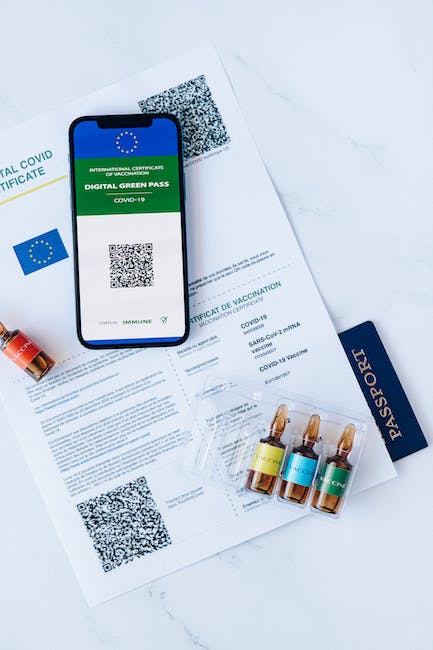
In our modern world, it’s easy to store your travel documents digitally, either by emailing yourself a scan, storing them in the cloud, or downloading an app like Dropbox or Google Drive. This way, even if you lose your physical copies, you can easily retrieve them on your phone or tablet. It’s essential to keep in mind that these digital copies may not be formally accepted as a valid documentation, so make sure you also have physical copies.
4. Double-Check Everything

Before you leave for your trip, it’s crucial to double-check that you have all necessary travel documents and that they are up-to-date. If you need to renew your passport or visa, do it far enough in advance to avoid the last-minute rush. It’s also a good idea to make a list of all the required documents so that you don’t forget anything before you hit the road.
You should also check that your travel documents meet the entry requirements for the country you’re visiting. Some countries may require specific data formats or mandatory vaccinations for travelers, so make sure you research this before your journey start.
5. Check Entry Requirements

As we mentioned in point four, entry requirements for different locations vary. Some countries require a travel visa or other types of documentation, and some may have restrictions on what you can bring in or take out of the country. Before you depart, make sure you research the entry requirements of your destination and ensure that you have all necessary documents in advance. Some countries also require you to show proof of accommodation or onward travel, so make sure you have this documentation readily available too.
6. Keep Track of Deadlines

If you’re planning on staying in a country for a more extended period, make sure you keep track of any deadlines for renewing your visa or other important documents. It’s recommended that you renew your visa a few weeks before its expiration date to avoid any issues with overstaying.
You can set up reminders on your phone or organize a reminder system, so you don’t forget about the expiration or renewal date for your travel documentation while exploring your new location.
7. Use RFID Protection
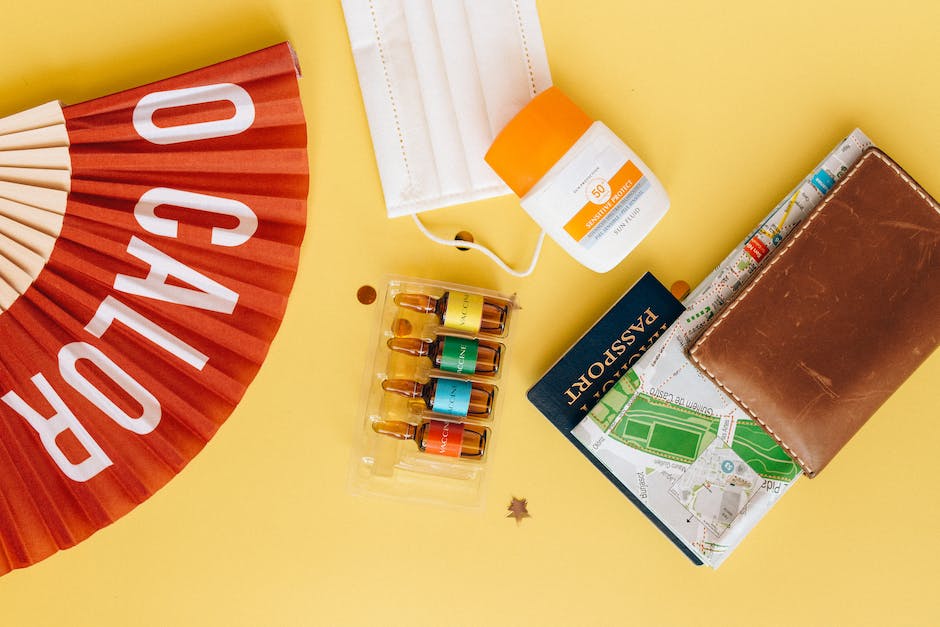
In today’s digital age, it’s easier than ever for scammers to access sensitive data stored on your passport or credit cards. It’s recommended to invest in a travel document holder or wallet that comes with RFID protection built-in to prevent identity theft.
These special wallets consist of a secure material that blocks radio waves being transmitted, preventing any identity thieves or cybercriminals from obtaining this information. It’s a small investment to protect yourself from the potential nightmare of identity theft.
8. Keep Your Documents Safe on the Plane

While traveling on a plane, it’s not uncommon to store your passport, travel documents, and boarding pass in the seat pocket in front of you. However, this leaves them open for potential loss or theft. We suggest keeping those documents in your personal item, such as a purse or backpack.
Consider using a travel wallet equipped with a neck or shoulder strap, so you don’t have to worry about forgetting it in the seat pocket in front of you. If you have a long flight, you may need to access your passport or other documents multiple times, and so having these in your personal item makes it easy and convenient to reach them quickly without worrying about misplacing them.
9. Don’t Flash Your Documents
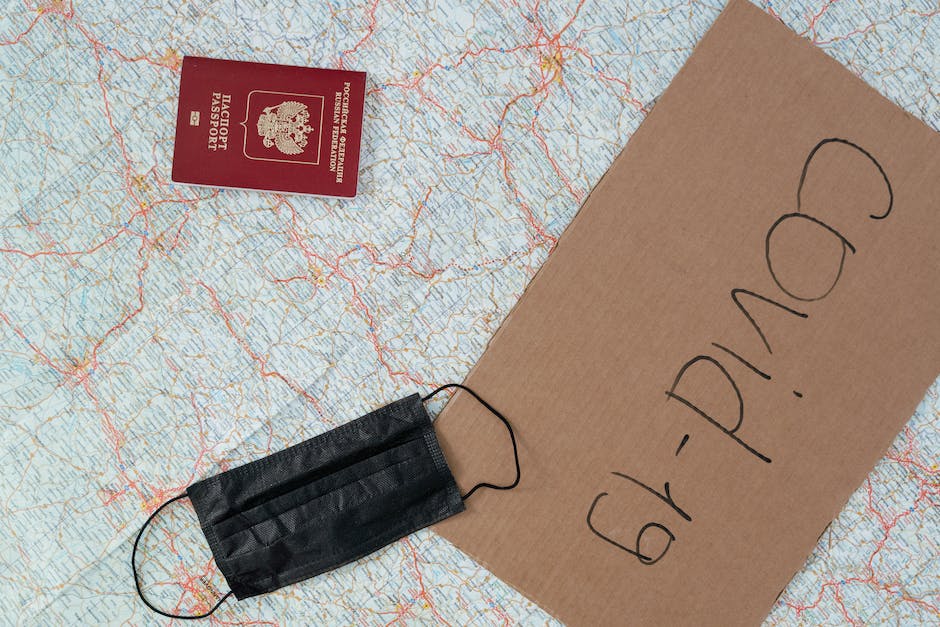
When traveling, it’s best to keep a low profile and avoid flaunting your passport or visa around. It’s advisable to only present these documents when necessary, such as during customs checks or if there’s a need to prove your identity. Avoid flashing your passport, as this can easily make you a target for theft or other types of crime.
Suppose you need to present your passport or visa for identification purposes. In that case, it’s advisable to show it discreetly and protect it from prying eyes by using your body to block any potential onlookers trying to glance at your personal information.
10. Keep Them Safe When You’re Out and About
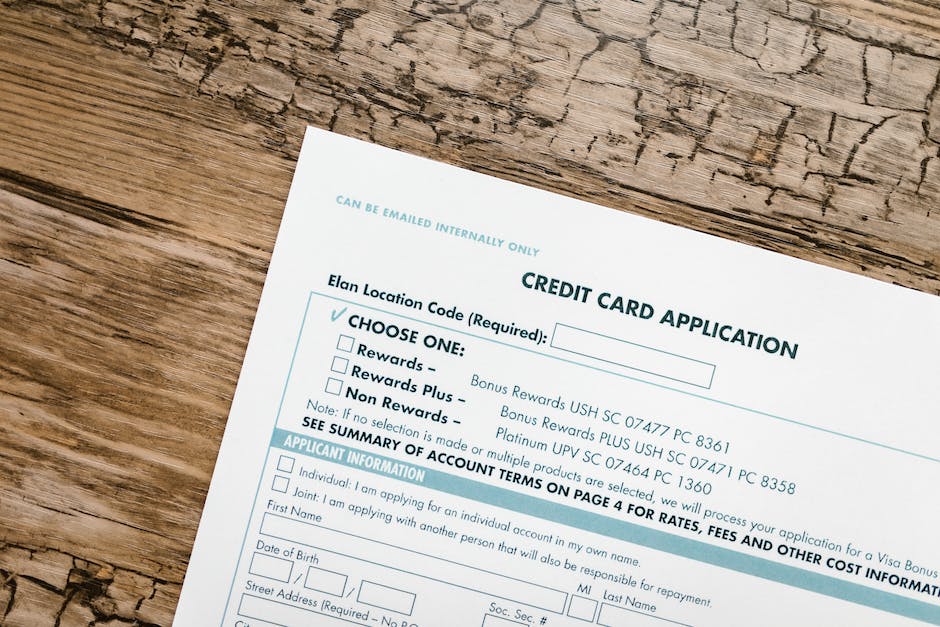
When traveling, it’s best not to carry your passport or other travel documents on you unless absolutely necessary. We suggest leaving your documents in a secure place, like a hotel room safe.
If you need to go out with your passport, consider using a travel document wallet with a cross-body strap so that you can keep it close and protected from potential theft. Alternatively, you can use a hidden wallet that can be worn underneath your clothes where you can keep your passport close and safe at all times.
There you have it! A comprehensive guide to keeping your travel documents organized and safe as a solo traveler. Follow these tips, and your travels are sure to be smooth sailing!

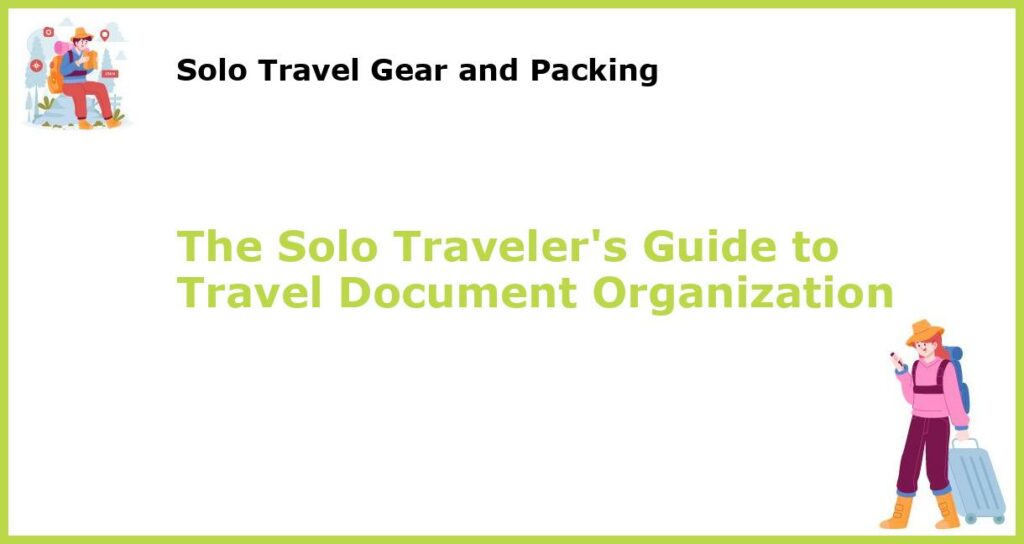






 You might also be interested in those articles related to solo traveling
You might also be interested in those articles related to solo traveling